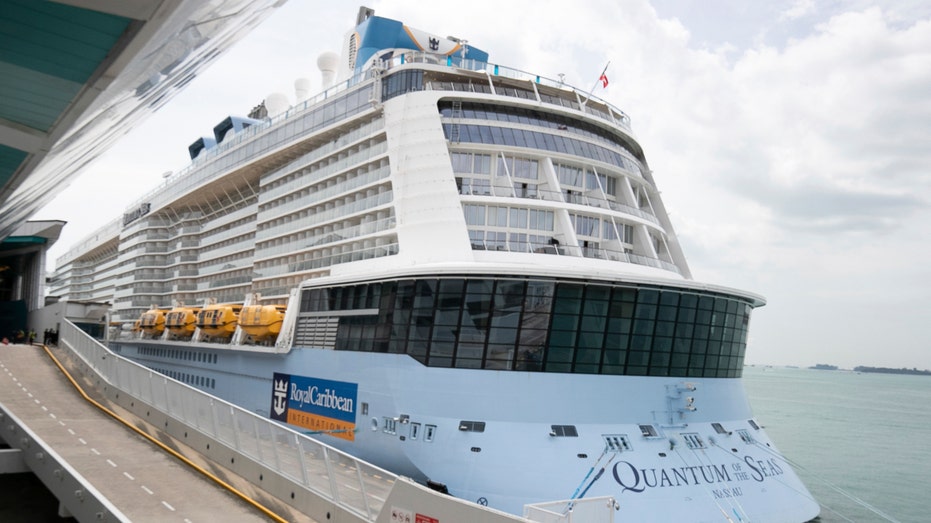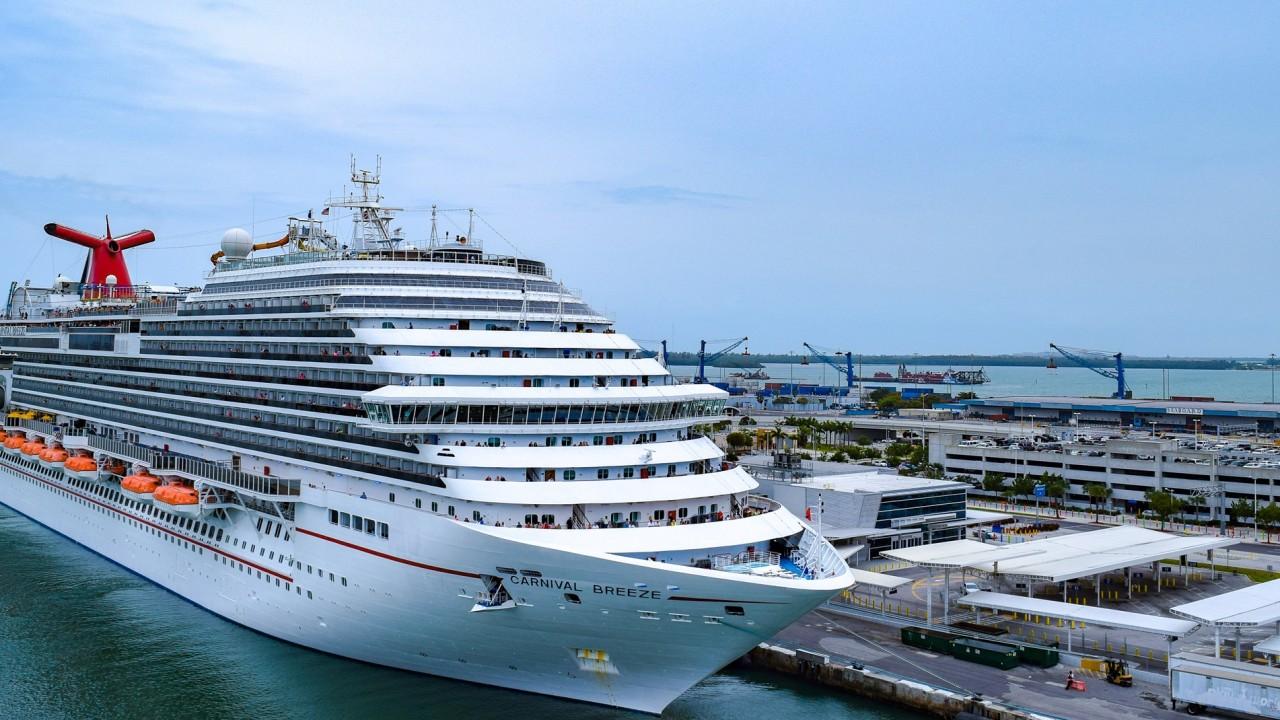Coronavirus sneaked past safeguards to halt Singapore ‘cruise to nowhere’
83-year-old tests positive for COVID-19 on ship operated by Royal Caribbean after everyone had to test negative before boarding
Since coronavirus outbreaks on cruise ships shook the industry earlier this year, operators have tried to win back passenger confidence with options such as “cruises to nowhere” that circle the seas without making port calls. They have upgraded air filters, lowered capacity, required preboarding Covid-19 tests, and enforced physical distancing.
But the virus still found its way on board.
A cruise ship operated by Royal Caribbean International returned to port in Singapore on Wednesday after an 83-year-old passenger tested positive. All of the passenger’s close contacts were isolated and have since tested negative, according to the Singapore Tourism Board. The remaining guests have been instructed to stay in their rooms until they get the all-clear, and meals are being sent directly to the rooms.
CARNIVAL, NORWEGIAN, ROYAL CARIBBEAN EXTEND SUSPENSION OF MOST SAILINGS THROUGH END OF FEBRUARY

The Quantum of the Seas cruise ship is docked at the Marina Bay Cruise Center Wednesday, Dec. 9, 2020, in Singapore. (AP Photo/Danial Hakim)
Royal Caribbean was one of two operators recently allowed to resume sailing from Singapore under safety protocols developed in collaboration with the city-state’s tourism authorities. Its ship, Quantum of the Seas, was forced to cut its trip short after the passenger complained of diarrhea and later tested positive.
All passengers will be allowed to disembark after a review of contact tracing is complete and will be tested before leaving the terminal, authorities said. “That we were able to quickly identify this single case and take immediate action is a sign that the system is working as it was designed to do,” the company said.
Questions remain over how the virus made it onto the ship in the first place. All passengers and crew were required to test negative before boarding, and it isn’t known when or where the virus was contracted. Singapore allowed a cautious restart to the cruise industry in part because it has kept infections low in recent months.
Since the start of December, the city-state has recorded four locally transmitted cases and last month had a two-week streak in which there were none. Overall, Singapore has recorded just over 58,000 Covid-19 cases and 29 deaths.
Cruise lines have suffered a severe blow from the pandemic. The industry, valued at about $150 billion in 2018 according to the Cruise Lines International Association, an industry organization, came to a sudden standstill after outbreaks on several ships. In February, around 3,700 passengers were quarantined on the Diamond Princess, docked in Japan, after passengers and crew fell ill. More than 700 tested positive and six people died.
PRINCESS CRUISES CANCELS WEEKLONG (AND LONGER) US VOYAGES THROUGH NOVEMBER 2021
In late November, Norwegian operator SeaDream said it would suspend sailing for the rest of the year after seven guests and two crew members tested positive during a trip that set sail from Barbados. The company said it would evaluate whether it was possible to operate and have a high degree of certainty of not spreading Covid-19.
Some countries including Singapore and Japan have relaunched limited voyages under new guidelines. Royal Caribbean and Genting Cruise Lines are the only two operators running in Singapore.
Singapore’s tourism authorities require the companies to limit initial voyages to round-trip sailings with no ports of call, carrying no more than 50% capacity and open only to Singapore residents. Royal Caribbean said it has implemented mandatory pre- and post-trip testing and medical-grade sanitation, and provides fresh, filtered air.
GET FOX BUSINESS ON THE GO BY CLICKING HERE
In early November, a reporter for The Wall Street Journal embarked on Genting’s World Dream cruise, where passengers were required to carry Bluetooth contact-tracing devices at all times. Social distancing was enforced by “cruise ambassadors” who roamed the decks looking for groups of more than five people and guests who weren’t wearing masks. Buffets were staffed by people serving food from behind a glass shield, and bookings were required for amenities such as the swimming pool and gym to ensure manageable traffic.




















